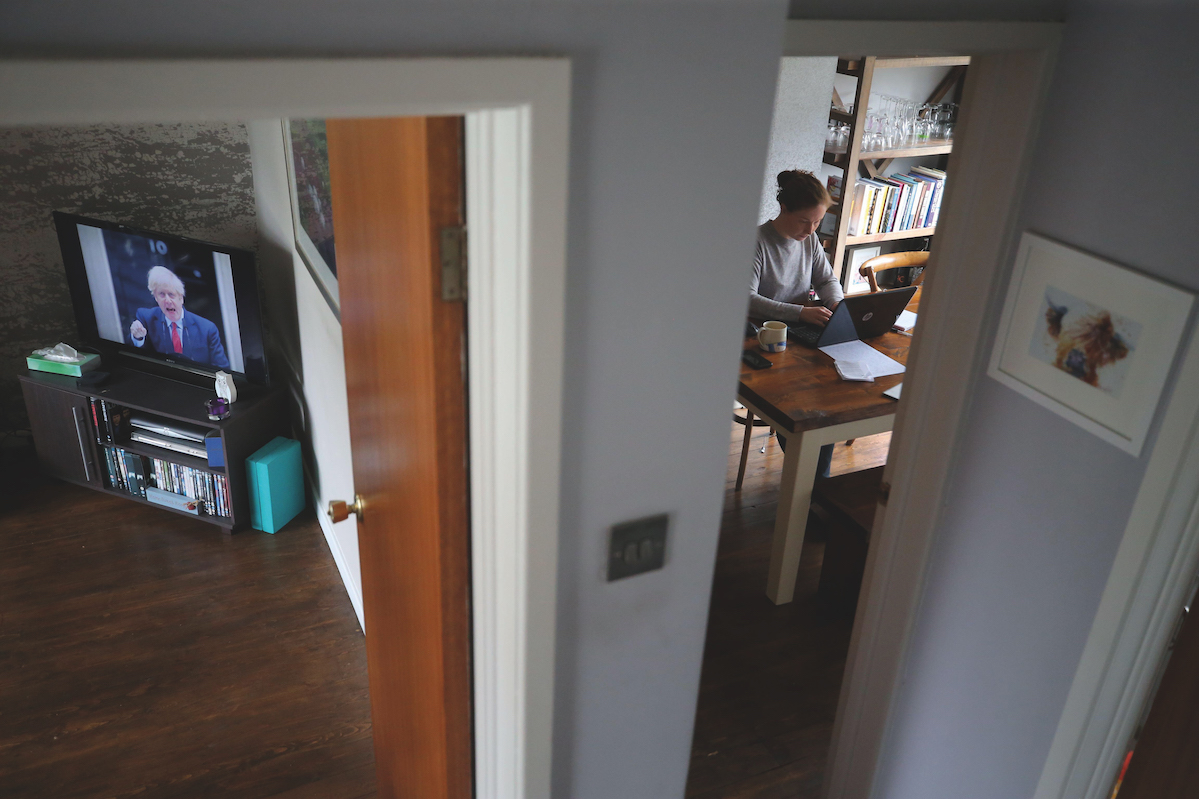The Future of Work review that never was
6 min read
Boris Johnson was forced out before Matt Warman could complete a review on the future of work. It was, he reports, a fitting end to an impossible task.
“The problem you have, of course,” I was told by a very senior special adviser, “is that everybody knows this Future of Work review has been invented to keep you busy.”
It would be undiplomatic to name them but let’s just say any government would benefit from such insight and willingness to state the obvious out loud. Asked – after an unfortunate reshuffle experience by an apologetic chief whip – whether there was anything I would like, I had somewhat short-sightedly thought to be useful, rather than simply say “a knighthood”.
So, after a degree of wrangling over terms and resources, it was in May 2022 that Boris Johnson announced the Future of Work review. Initial discussions had tried to focus it narrowly on the impact of new technologies such as AI on the workforce, but my instinct was that the future of work more broadly would both be more interesting and impossible to disentangle from technology anyway.
Examining the real impact of the forces likely to buffet business and government, and recommending what departments might do to shape it in the broadest interests of citizens, was my aim.
Taking the themes of technology, skills, workers rights and place, and producing a rapid review of work – such as the Taylor Review, which dealt with the issues surrounding changing worker status as a result of the digital economy – to update related policies.
It needed to be acknowledged that it was the advent of the internet that reshaped our high streets, that Covid changed our views of working from home in a range of ways and, above all, to try to quantify the cumulative impact of these issues.
We would take into account that, for example, campaigners on the four-day week were making headway and see where skills policy and workers’ rights had relevant gaps.
My overwhelming sense was that government hadn’t joined the dots of a coming revolution
Levelling up was running to catch up with discontentment, manifested in rage at declining town centres, litter and more, but the reality was that in ‘forgotten’ towns only broad-based economic growth would provide the revival required for political success.
My overwhelming sense was that government hadn’t joined the dots of a coming revolution, and there continued to be unhelpful distractions, as when working from home momentarily became a key front in the culture wars.
It is probably not a spoiler to say that the review was cut short by Johnson’s resignation – any reflections are shaped by the fact we didn’t have enough time to really alter my initial thinking.
Nonetheless, there are a few standout themes. It’s clear the government of which I was a part pragmatically adopted a range of interventionist policies in a bid to revive high streets, from subsidising refurbishments to introducing rent auctions for vacant units. These were important, but were never going to be sufficient and certainly took far too long. There is no way they could ever meaningfully impede the destruction of retail jobs on the high street.
Likewise, it remains impossible to comprehensively predict the impact of AI on the overall economy – educated guesses still don’t really try to look at it in the round because the structure of government imposes silos and No 10 isn’t a think tank.
In truth, reviews of the sort I was tasked with doing should be more independent of government than I was. Today, organisations such as the Tony Blair Institute for Global Change are looking at them with resources the government was unlikely to allocate. Their conclusions are both that the potential is immense and that the destruction of jobs will be more than offset by new ones.
Historically, changes to workers’ rights and working patterns as a result of technology have had profound impacts. The invention of the weekend, maternity leave and more came about because productivity improvements made them thinkable. Today it’s possible the future of work includes an ever-growing number of rights to time off, and indeed a meaningful right to switch off completely, should one wish to. Government was considering, rightly, looking at this trend in the round for fear of inadvertently piling on endless, well-intentioned burdens on business.
The greatest privilege of doing such a wide-ranging piece of work was in meeting a diverse range of people. From then-TUC chair Frances (now Baroness) O’Grady – quite the most inscrutable interlocutor I’ve ever encountered – to four-day week researchers and Treasury economists, what was clear was for many people there’s a fear that changing work is something that will be done to them, while others see something to be seized. In truth almost everyone, prime ministers included, exists in a grey area in between. My aim was that towards the end of the review I would hold a series of roundtables that brought together disparate interests who seldom talked to each other.
There is one battle at the heart of this: are we really moving to a system where everyone can be paid by results? The few things only humans can do are different to the repetitive tasks suited to machines, but where does this leave those tasks to which it will apply more slowly or not at all? Staff in A&E can’t go home after they’ve set a specific number of bones; we’re a long way from automated street cleaning or road maintenance. In every industrial revolution, the question is how do we manage the transition – and is it really viable that those tasks diminish overall, even in social care or plumbing?
Every industrial revolution has also created more jobs than it has destroyed, which is handy as populations have exploded. The trouble is, it would be unprecedented. We don’t know what we don’t know. We never will. Thinkers about the future of work might be best-placed to worry about what can vaguely be controlled – that’s more than enough to foster a global reorganisation, the scale of which is still almost impossible to imagine. It’ll take a lot more than another review.
Matt Warman was Conservative MP for Boston and Skegness from 2015 to 2024
